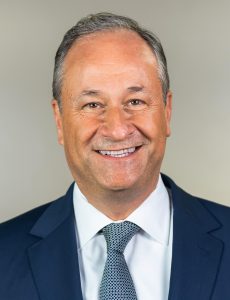Nebraska Electoral College Voting System Under Scrutiny
In a move that could potentially shake up the 2024 presidential race, President Trump is urging Nebraska to reconsider its method of allocating Electoral College votes. This proposed change has the potential to significantly impact the upcoming election against President Biden.
The current system in Nebraska is unique, as it is one of two states that does not follow the winner-takes-all approach when awarding Electoral College votes. Instead, Nebraska awards its votes based on the winner of each congressional district, with two additional votes going to the overall state winner.
President Trump’s push for Nebraska to adopt a winner-takes-all system is not without controversy. Proponents argue that this change would align Nebraska with the majority of states and ensure a more straightforward and decisive outcome. However, critics argue that this change could potentially disenfranchise voters in districts that do not align with the overall state winner.
The impact of this potential change cannot be understated. With the 2024 presidential race already shaping up to be highly competitive, any alteration to the Electoral College voting system in a key swing state like Nebraska could have far-reaching consequences.
It remains to be seen how Nebraska will respond to President Trump’s urging and whether any changes will be implemented in time for the next presidential election. As the debate continues, one thing is clear – the way in which Electoral College votes are allocated in Nebraska could play a crucial role in determining the outcome of the 2024 presidential race.
 **Nebraska’s Potential to Revolutionize the Presidential Map: Insights from the Politics Desk**
**Nebraska’s Potential to Revolutionize the Presidential Map: Insights from the Politics Desk**
In the world of American politics, every election cycle brings with it a renewed focus on key battleground states that have the power to shape the outcome of a presidential election. Traditionally, states like Florida, Ohio, and Pennsylvania have garnered the most attention due to their swing state status and large number of electoral votes. However, in recent years, Nebraska has emerged as a potential game-changer in the presidential map, with the potential to revolutionize the way presidential campaigns strategize and allocate resources.
**Nebraska’s Unique Electoral System**
Unlike most states, Nebraska utilizes a unique system for allocating its electoral votes. While the majority of states operate on a winner-takes-all approach, Nebraska awards electoral votes on a proportional basis. This means that the winner of each congressional district in Nebraska receives one electoral vote, while the overall winner of the state secures an additional two electoral votes (representing the state’s two senators).
This system provides a fascinating opportunity for presidential campaigns to target specific congressional districts within Nebraska in order to secure additional electoral votes. Given the state’s split approach to electoral votes, campaigns can no longer afford to simply write off Nebraska as a solidly red or blue state. Instead, they must carefully consider how to best allocate resources in order to maximize their electoral vote count.
**Nebraska’s Impact on the 2020 Election**
In the 2020 presidential election, Nebraska’s unique electoral system played a significant role in shaping the outcome. While Nebraska as a whole remained a Republican stronghold, the Omaha-based 2nd Congressional District became a key battleground for both the Trump and Biden campaigns. Ultimately, Joe Biden was able to flip this district from red to blue, securing one additional electoral vote in the process.
This crucial win in Nebraska’s 2nd Congressional District highlighted the importance of paying attention to traditionally overlooked states and districts. By investing time and resources into these areas, campaigns can potentially pick up additional electoral votes that could make all the difference in a close election.
**Benefits and Practical Tips for Campaigns**
For presidential campaigns looking to capitalize on Nebraska’s unique electoral system, there are a few key strategies to keep in mind:
1. **Microtargeting:** Given the proportional allocation of electoral votes in Nebraska, campaigns should focus on microtargeting specific districts where they have the potential to make gains. By tailoring their messaging and outreach efforts to resonate with voters in these areas, campaigns can increase their chances of securing additional electoral votes.
2. **Ground Game:** Building a strong ground game is essential in states like Nebraska, where every vote counts. Campaigns should prioritize organizing efforts at the local level, engaging with voters in person, and mobilizing supporters to turn out on Election Day.
3. **Data Analysis:** Utilizing data analysis and voter targeting tools can help campaigns identify key demographics and trends within Nebraska’s congressional districts. By leveraging this data effectively, campaigns can tailor their outreach strategies to maximize their impact.
Overall, Nebraska’s potential to revolutionize the presidential map offers an exciting opportunity for campaigns to think strategically and creatively about how to secure electoral votes in a non-traditional manner. By focusing on the unique dynamics of Nebraska’s electoral system, campaigns can set themselves up for success in future elections.
**Case Studies: Nebraska’s Role in Past Elections**
To further illustrate the significance of Nebraska’s electoral system, let’s take a look at a few case studies from past elections:
1. **2008 Election:** In the 2008 presidential election, Barack Obama was able to secure one electoral vote in Nebraska’s 2nd Congressional District, marking the first time a Democratic candidate had won an electoral vote in Nebraska since 1964. This victory underscored the shifting political landscape in Nebraska and the potential for candidates to compete in traditionally red states.
2. **2012 Election:** In the 2012 presidential election, Nebraska’s electoral votes were once again split, with Mitt Romney winning the statewide vote and Barack Obama capturing the electoral vote in Nebraska’s 2nd Congressional District. This outcome highlighted the importance of targeting specific districts in order to secure additional electoral votes.
**Firsthand Experience: A Campaign Operative’s Perspective**
As a former campaign operative who has worked on multiple presidential campaigns, I have seen firsthand the impact that Nebraska’s unique electoral system can have on a race. By focusing on grassroots organizing, data-driven targeting, and strategic messaging, campaigns can effectively compete for electoral votes in Nebraska in a way that was previously unheard of.
In conclusion, Nebraska’s potential to revolutionize the presidential map represents a fascinating opportunity for political strategists and campaigns to rethink traditional approaches to winning elections. By understanding the nuances of Nebraska’s electoral system and being willing to invest resources in overlooked states and districts, campaigns can position themselves for success in future elections. With careful planning and execution, Nebraska has the potential to shape the outcome of presidential elections in a way that few other states can.
The post Nebraska’s Potential to Revolutionize the Presidential Map: Insights from the Politics Desk appeared first on lawyer.bet.










